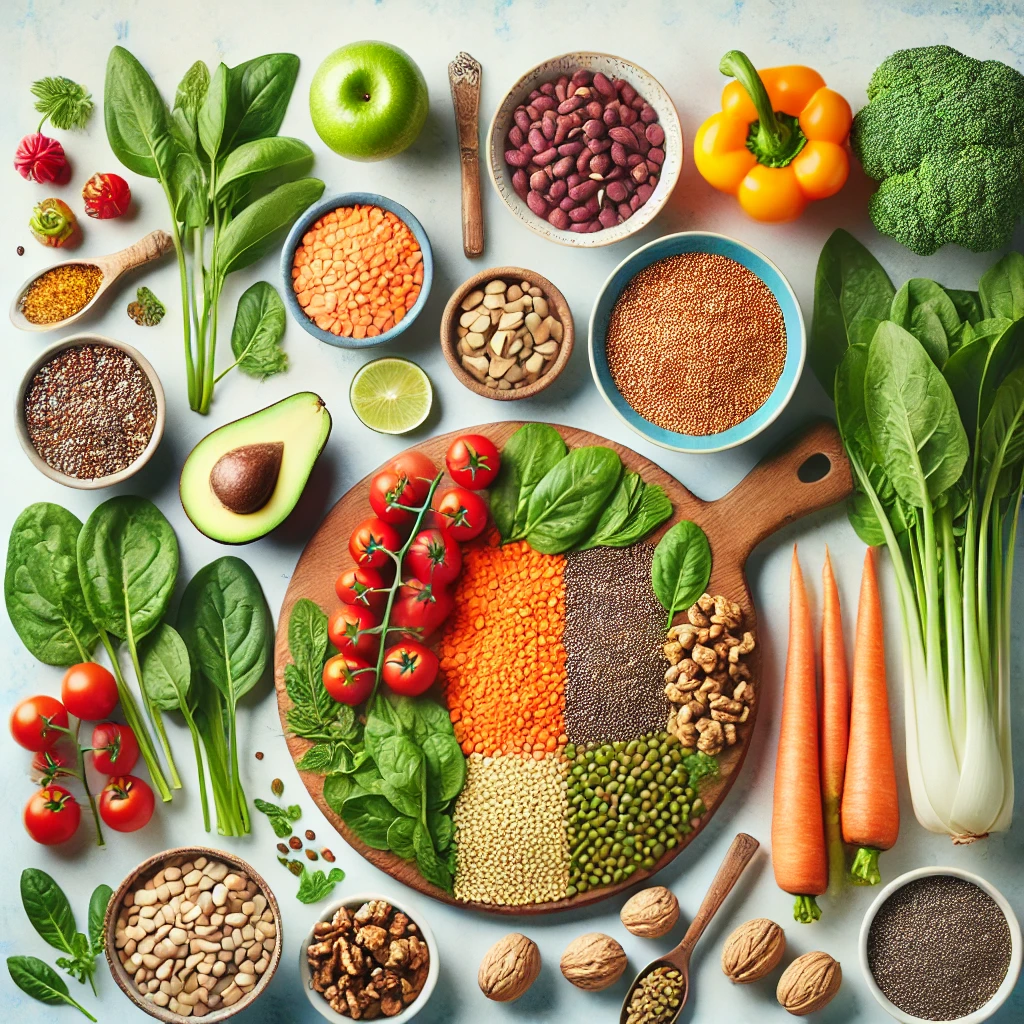The connection between diet and mental health is gaining increasing attention, and one diet that stands out in this discussion is the vegan diet. Veganism, characterized by the exclusion of all animal products, is not only known for its health benefits but also for its potential positive impact on mental well-being.
In this article, we’ll explore how a plant-based diet can enhance mood, reduce anxiety, and support better cognitive function.
Table of Contents
ToggleMood Improvement
One of the most profound ways a vegan diet can influence mental health is through mood improvement. A plant-based diet is rich in fruits, vegetables, whole grains, nuts, and seeds, which are packed with essential vitamins, minerals, and antioxidants. These nutrients play a crucial role in brain health and emotional stability. For instance:
- Omega-3 Fatty Acids: Found in flaxseeds, chia seeds, and walnuts, omega-3s are known to support brain function and improve mood. Studies suggest that adequate levels of these essential fatty acids can help reduce symptoms of depression.
- B Vitamins: These vitamins, particularly B6, B12, and folate, are vital for neurotransmitter function and the regulation of mood. A well-planned vegan diet includes fortified foods or supplements to ensure adequate intake of these nutrients.
- Antioxidants: The high levels of antioxidants in fruits and vegetables can reduce oxidative stress and inflammation, which are linked to mood disorders.
Reduced Anxiety
Anxiety can be significantly impacted by dietary choices. A vegan diet may contribute to reduced anxiety through several mechanisms:
- Stable Blood Sugar Levels: Plant-based diets are often high in fiber, which helps maintain stable blood sugar levels. Fluctuating blood sugar levels can lead to anxiety and mood swings. By providing a steady release of energy, a vegan diet can help stabilize mood and reduce anxiety.
- Reduced Inflammation: Chronic inflammation is associated with anxiety and other mental health issues. A diet rich in anti-inflammatory foods like leafy greens, berries, and nuts can help combat inflammation and support a calmer state of mind.
- Gut Health: Emerging research highlights the gut-brain connection, where gut health influences mental well-being. A vegan diet, rich in fiber and prebiotics, promotes a healthy gut microbiome, which can positively impact anxiety levels.
Better Cognitive Function
Cognitive function, including memory and concentration, is another area where a vegan diet can offer benefits:
- Brain-Boosting Nutrients: Plant-based diets provide an abundance of antioxidants, vitamins, and minerals that support brain health. For example, vitamin E from nuts and seeds, and flavonoids from berries, have been shown to enhance cognitive function and protect against age-related decline.
- Anti-Inflammatory Properties: As mentioned earlier, reducing inflammation through a plant-based diet can help protect the brain from damage and support better cognitive function.
- Improved Sleep: Quality sleep is crucial for cognitive health. A vegan diet that includes sleep-promoting foods such as bananas, almonds, and oats can contribute to better sleep patterns, which in turn supports cognitive function and overall mental health.
Incorporating a Vegan Diet for Mental Health
To fully reap the mental health benefits of a vegan diet, it’s important to ensure that the diet is well-balanced and nutrient-dense. Here are some tips for incorporating a plant-based diet for optimal mental well-being:
- Diversify Your Plate: Include a variety of fruits, vegetables, whole grains, legumes, nuts, and seeds to cover all essential nutrients.
- Consider Supplements: Depending on individual needs, consider supplements for nutrients like vitamin B12, vitamin D, and omega-3s to avoid deficiencies.
- Stay Hydrated: Drink plenty of water throughout the day, as dehydration can negatively affect mood and cognitive function.
Frequently Asked Questions
Can a vegan diet really improve mood?
How does a vegan diet help reduce anxiety?
What are the benefits of a vegan diet for cognitive function?
Are there any specific vegan foods that help with mental health?
Do I need to take supplements on a vegan diet for mental health?

William is a dedicated nutritionist and passionate advicer for vegan living, bringing a wealth of expertise to TopVeganDiet.com. With a background in plant-based nutrition and a love for healthy, sustainable eating, he provides valuable insights and practical advice for those interested in adopting or enhancing a vegan diet.



